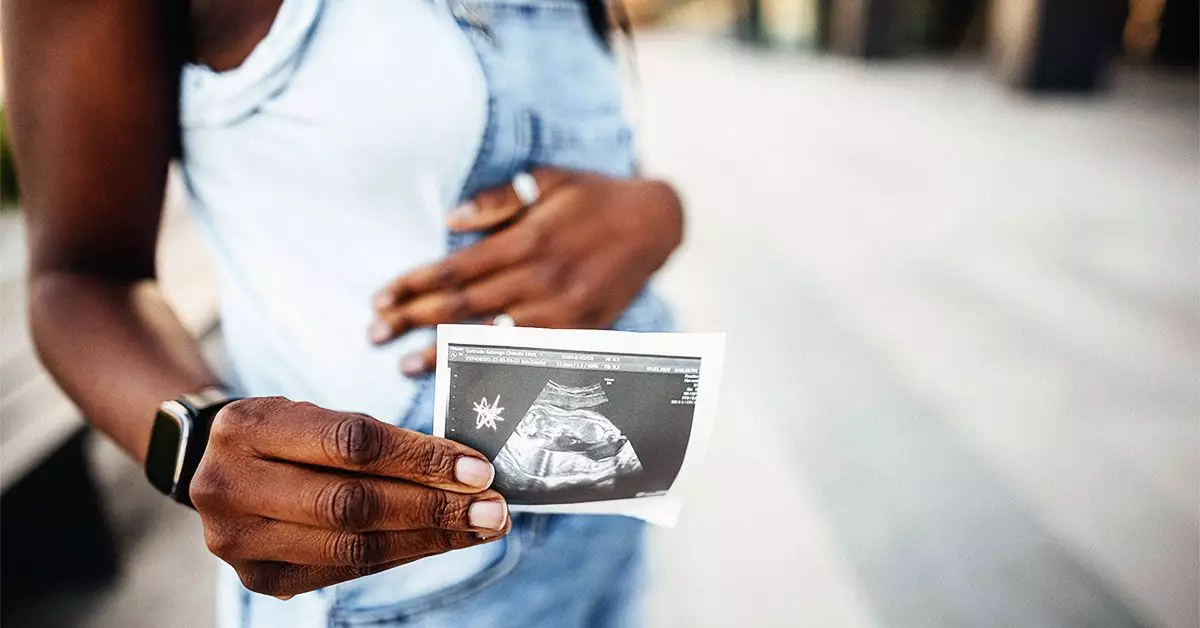Ectopic pregnancy is a medical condition wherein a fertilized egg implants outside the uterus, frequently within the fallopian tubes. This dislocation can lead to serious health threats for the pregnant individual and requires prompt medical attention. Despite its life-threatening potential, ectopic pregnancy occurs in only about 1% to 2% of pregnancies overall. Various factors contribute to the likelihood of developing this condition, including infections and anatomical abnormalities, but the debate around abortion as a contributing factor has generated significant confusion and concern.
Historical Context and Past Research Findings
Over the years, older studies have suggested that there is a potential correlation between previous abortions and an increased incidence of ectopic pregnancy. One notable study from 1995 examined a diverse group of women: those diagnosed with ectopic pregnancies, those who had healthy full-term deliveries, and a control group of non-pregnant individuals. The results revealed that a notable percentage of those who experienced ectopic pregnancy had undergone induced abortions previously. However, it’s crucial to recognize that correlation does not imply causation. No thorough or modern research has substantiated these older findings, and many have called them into question.
For example, a comprehensive study conducted in 2010 involving over 3,700 women showcased no significant difference in the rates of ectopic pregnancy between those who had multiple abortions and those who had just one. This suggests that the previously presented notion of a “dose-dependent” relationship—wherein the risk supposedly increases with the number of abortions—may not hold true under scrutiny. Rather, newer methodologies and improved medical practices signify that older studies could reflect conditions and healthcare environments that do not parallel today’s standards.
The American College of Obstetricians and Gynecologists (ACOG) does not consider a woman’s abortion history a risk factor for ectopic pregnancy. The organization underscores that the science surrounding this subject has evolved, illustrating a clearer distinction between correlation and causation. Contemporary understanding emphasizes that common risk factors—such as infections or damage to the fallopian tubes—are far more relevant to the development of ectopic pregnancies than a history of abortion.
Infections, while rare in legal and medically supervised abortion settings, can manifest as complications from surgery. Nonetheless, modern practices surrounding abortion now prioritize hygiene and prophylactic treatments such as antibiotics to mitigate these risks effectively.
A prevailing myth posits that abortions contribute to infertility, leading to unnecessary anxiety among those considering or having undergone the procedure. Research has consistently shown that safe abortions typically do not impair future fertility. The notion that a single abortion could impact a woman’s ability to conceive contradicts the findings of a 2016 Finnish study, which indicated that individuals with prior abortions were, in fact, less likely to require fertility treatments than those who had never had an abortion.
However, in rare cases, complications from abortions—like untreated infections—can manifest severe health risks. Yet, such instances are uncommon in contexts where individuals have adequate access to legal and safe abortion care, significantly lowering the probability of long-term reproductive repercussions.
The relationship between abortion and ectopic pregnancy remains largely speculative, supported by outdated research that fails to hold relevance in today’s clinical landscape. Recent studies have failed to establish a definitive causal link, pointing instead to other, more proven risk factors such as infections and smoking behaviors.
As research continues to illuminate these issues, it becomes clear that misconceptions can lead to undue fear and misinformation. Comprehensive discussions about reproductive health, bolstered by evidence and supported by modern practices, are essential. This dialogue equips individuals with the knowledge necessary to make informed decisions regarding their reproductive choices without the shadow of unfounded myths. Safe, legal abortions remain a crucial part of reproductive health and should be supported by accessible information and care.

